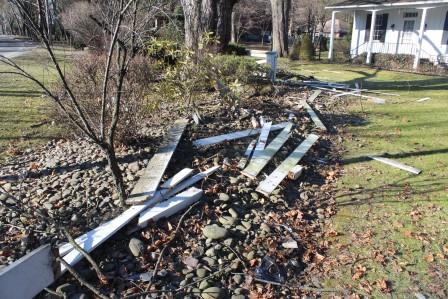The world stared in disbelief recently at the news that an American city of nearly 100,000 was needlessly exposed to toxic levels of lead in the city’s water system. In Flint, Michigan, thousands of families fear for their health and their children’s future. And as the full story has emerged, disbelief has turned to outrage, turning Flint into a political issue big enough to attract a presidential debate.
But what will happen once the television cameras and the presidential candidates leave Flint? Will there be meaningful change to ensure this never happens again? That depends on whether the root causes of this disaster are addressed.
It’s no secret that the poorest communities in our nation are often the most vulnerable to pollution, whether it’s undrinkable water or unhealthy air. That fact is obviously both a health issue and an economic issue. But it’s also an issue of race and of justice.
Every family, regardless of income or skin color, should be able to expect that the air they breathe is clean, that the water they drink is safe, and that their government will treat them with fairness and equality.
In Flint, a tragedy that should never have happened was magnified by what can only be called callous indifference. How did the United States become a nation where something like this could happen?
It wasn’t by accident.
Shrinking government: A self-fulfilling prophesy
Anti-government lobbyist Grover Norquist famously said he wanted “to shrink government to the size where we can drown it in a bathtub.” That’s exactly what happened here and the result was clear:
Flint, Michigan, is what happens when we shrink government indiscriminately. And small-government zealots such as Michigan’s Gov. Rick Snyder should take note of that fact. But Snyder, for one, continues to drag his feet, refusing to release a clear timeline and price tag to replace Flint’s water infrastructure.
By setting out to prove that government doesn’t work, Snyder and his ilk have only succeeded in failing at governance — and at the expense of their constituents. Whether undermining government transparency, repealing pollution safeguards, or stripping infrastructure funding, they do all they can to tear government down, and decimate communities in the process.
Circumventing local government: Emergency managers
In no small part, mismanagement of the Flint water crisis was a result of state government bypassing local government, and ignoring the political will of its citizens. By appointing “emergency managers” who pressed to switch the water supply in order to cut corners and save money, Snyder circumvented the electorate and seized legal authority from democratically elected officials.
It’s true that these managers took over in jurisdictions that were already in dire financial straits, but because they are not elected and therefore not accountable to the communities they control, emergency managers are not the solution. They are often appointed to worry about the bottom line and cash savings, sometimes at the expense of the health and safety of the community.
We try to teach our young people that their voices and their votes matter, that being engaged in the community counts, but that message was drastically undercut in Flint. The appointment of emergency managers — almost exclusively in communities of color — took control from Michigan’s most vulnerable residents.
And the people of Flint, who suffered irreparable harm due to the poor decisions of these managers, are only the most egregious example of what can go wrong. The Emergency Financial Manager Law — which allows the state to appoint officials with the legal power to seize control of a city’s finances — must be repealed.
Crumbling infrastructure: Flint is just the latest example
Flint’s problems were also the result of the crumbling infrastructure that happens when we disinvest in our communities and our country.
Everyone watched in horror nearly 10 years ago when the I-35W Mississippi River bridge in Minneapolis suddenly collapsed into the river, killing 13 people and injuring 145. Politicians scrambled to come up with a plan for investing in infrastructure across the country — a plan that never materialized.
While the failing water infrastructure in Flint is less dramatic, it’s a slow drip that’s just as harmful. Ten years from now, let’s look back in regret at what we could have done, but didn’t, to prevent a future tragedy.
This time, we need more than lip service. We need commitments — now — and action as soon as possible. Our leaders must establish a permanent fund to address crumbling water infrastructure across the country and specifically to replace lead water pipes in cities such as Flint.
While it can be politically expedient to campaign on budget cuts, in the case of U.S. infrastructure, it’s simply wrong. Over the long term, investing in infrastructure actually saves money. More important, it saves lives. And until our leaders act, no community will be safe.
The NAACP has organized community meetings and collected the input of Flint residents, resulting in the compilation of a 20-point list of priorities, which you can read about here. The Sierra Club is working with local and state leaders to meet the community’s immediate needs, which you can read more about here.



